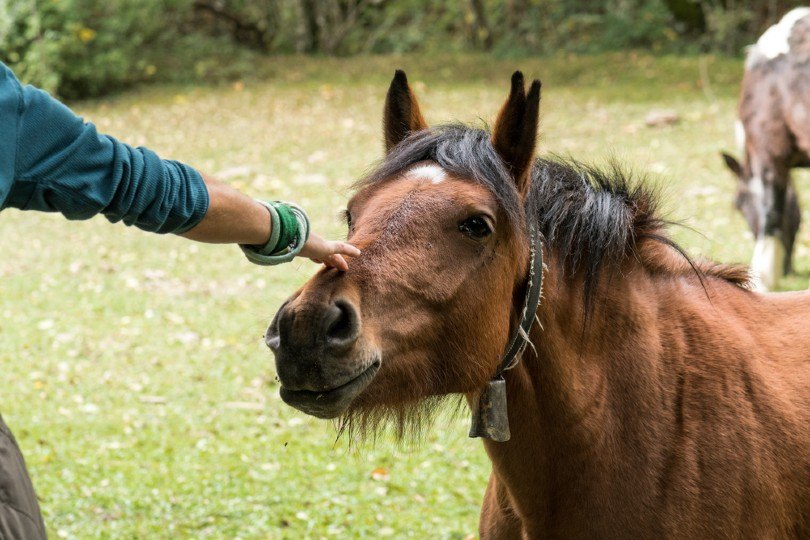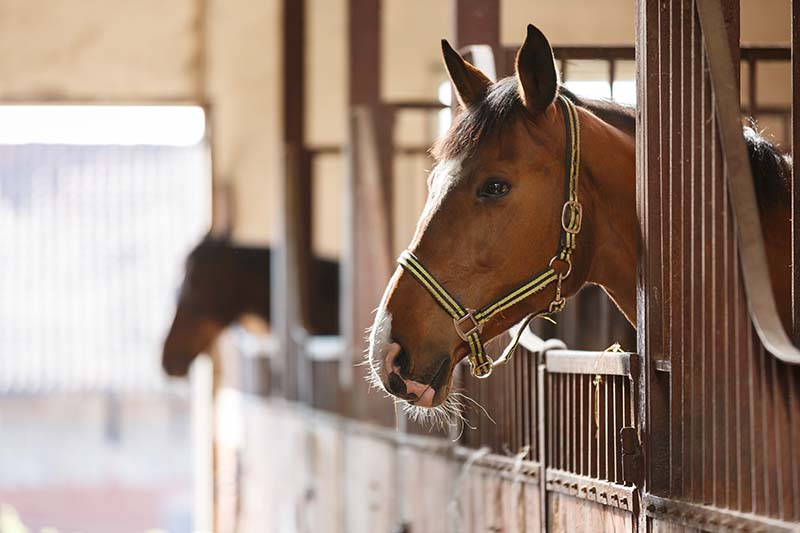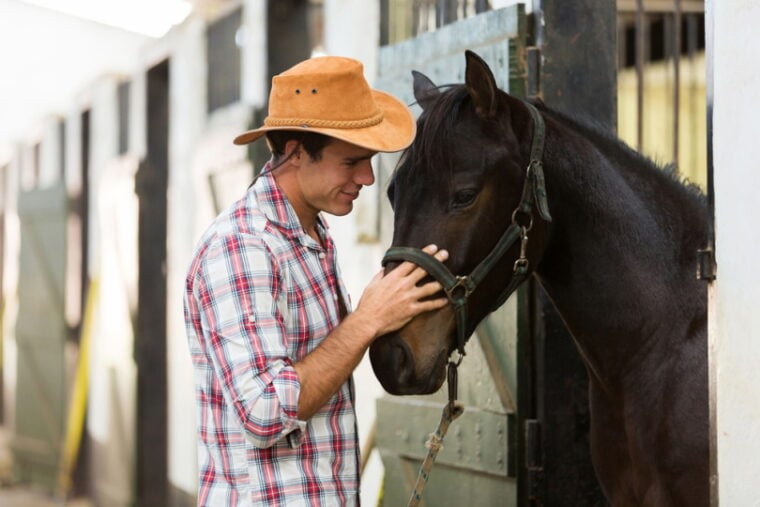
Horses are intelligent, social animals with individual personalities. They form strong bonds with people, other horses, and even other species of animals and it’s no secret that they can express emotion. Considering they are emotional beings and it’s pretty common to see tears coming from their eyes, it leaves you wondering whether horses are actually crying tears.
Though horses naturally produce tears, thus far science tells us that crying tears as a result of emotion is unique to us humans.1 Though there’s no evidence to suggest it has anything to do with emotion, there are plenty of other reasons your horse is shedding tears.

The Reasons Why Horses Shed Tears
There’s not much difference between the tears of a human and the tears of a horse other than a human can produce tears as an emotional response, while a horse’s is strictly related to the eye. Their tear glands and their entire lacrimal system work much in the same way ours do, and there are several reasons why you may notice tears coming from your horse’s eyes. Tearing can be due to the over-production of tears or a lack of drainage.
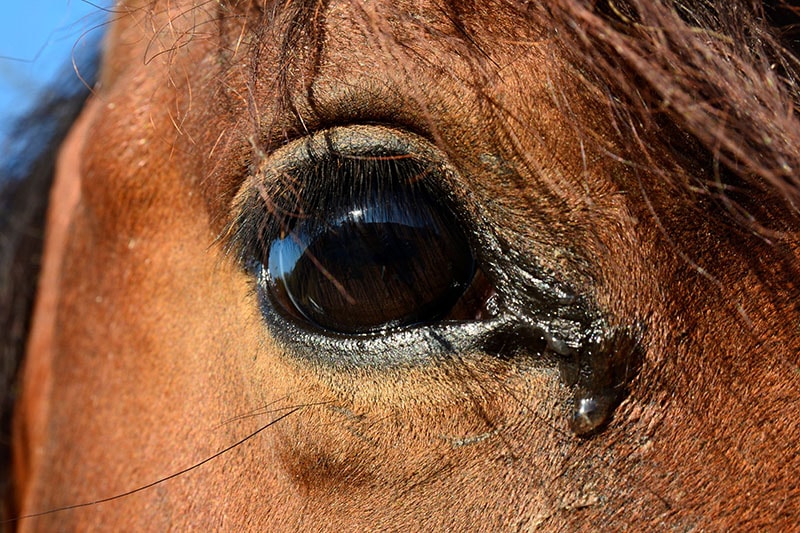
Natural Moisture for the Eyes
Basal tear production is the normal and constant tear production that is required to lubricate the eyes, protect the cornea, and allow proper functioning of the eyes. Failure to produce basal tears is considered a severe eye condition that can result in severe damage to the eyes. A horse’s natural basal tear production typically does not result in excessive tear production, though. Excessive tearing is often the result of something amiss within the eye.
Eye Irritation
A horse can tear up easily if their eyes become irritated. Many different factors can cause eye irritation, including misdirected eyelashes (entropion), dirt, dust, debris, or even insects. If something foreign enters the eye, it is natural for the body to produce excess tears to protect the eye and flush out the invader.
If your horse always has tears running down its face but has not changed its behavior at all (no sores or lameness) then it may be a blocked tear duct. Sometimes, a flush may be necessary.
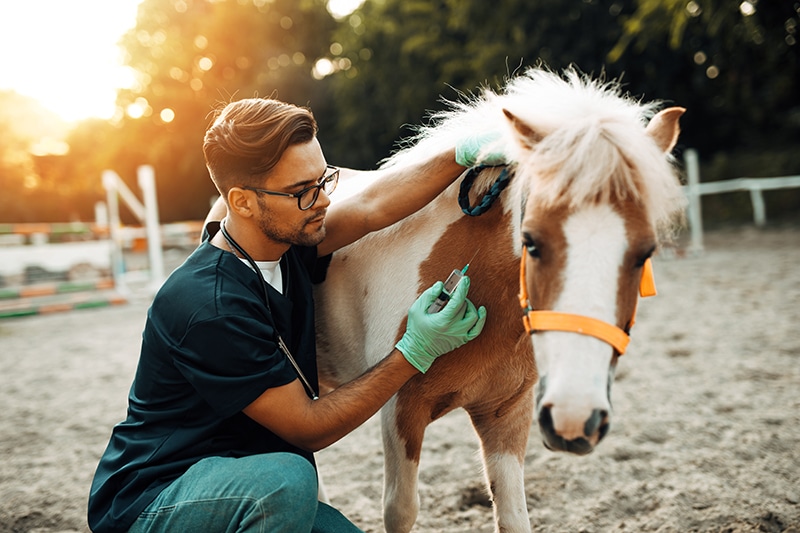
Blocked Tear Duct
The primary role of the tear duct is to drain tears through the nasal bone and into the back of the nose. If a tear duct becomes blocked, the tears will collect at the bottom of the duct and will end up spilling over and running down the face.
Blocked tear ducts can happen for many reasons including a foreign body, mucous, trauma, or infection. Since a horse’s tear duct is quite narrow, it can easily become blocked. A veterinarian can flush your horse’s nasolacrimal duct by inserting a small tube up through the nose and into the end of the duct. This is called retrograde lavage. If the tube is inserted through your horse’s eye, it is called normograde lavage.
Eye Infection
Excessive tear production can be the result of a dreaded eye infection. Like humans, horses can also get infectious conjunctivitis, which is an eye infection that will cause tearing, irritation, redness, and inflammation of the eye and surrounding area.
Severe infection can even result in the eye swelling shut, which is often accompanied by different types of eye discharge. An eye infection causes the area to be very sensitive to the touch and your horse may be reluctant to have their face touched.
Infection within the eye can be caused by bacteria, viruses, fungi, and parasites, which can be introduced by flies. Trauma, injury to the eye, or foreign bodies can cause corneal ulcers that are very painful and can cause blindness if left untreated. It’s very important to seek treatment as soon as you notice tearing, squinting, or swelling, as this can be a sign of a severe eye problem.
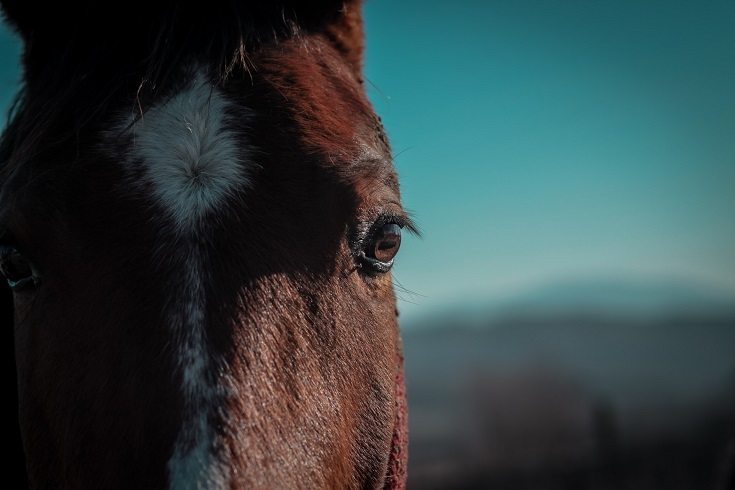

Other Eye Conditions
Horses can suffer from a variety of conditions that affect the eyes, many of which can lead to excessive tearing. If you notice your horse tearing up more than usual, it’s strongly advised that you reach out to your veterinarian for proper diagnosis and treatment.
Horses are susceptible to the following eye conditions:

Summary
Horses produce tears naturally, but they do not cry tears as a response to emotion as humans do. While their tear glands and their entire lacrimal system work much in the same way ours do, they will only cry tears as a physical response to an eye condition, not as a result of emotions. Tears provide natural moisture and protection, allowing for normal eye function. But when tearing becomes excessive, it’s often the sign of an underlying problem that may require treatment from a veterinarian.
- Related Read: Do Cats Cry Tears Like Humans? Vet Reviewed Facts & FAQs
Featured Image Credit: michaeljung, shutterstock

